Publications
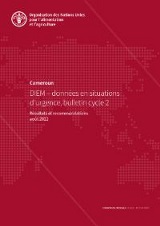
Cameroun: DIEM – données en situations d’urgence, bulletin cycle 2
09/2022
Ce bulletin sur le suivi des données dans les situations d'urgence (DIEM-suivi) présente les résultats de la troisiième évaluation sur le terrain réalisée en avril et mai 2022 au Cameroun.
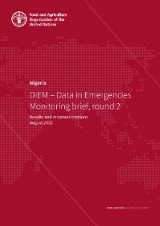
Nigeria: DIEM – Data in Emergencies Monitoring brief, round 2
09/2022
This Data in Emergencies Monitoring (DIEM-Monitoring) brief shares the results of a second-round field assessment conducted between June and July 2022 in Nigeria.

Pakistan: Urgent call for assistance
09/2022
Severe monsoon weather conditions since mid-June 2022 have disrupted the lives and livelihoods of 33 million people in Pakistan, mainly located in rural areas.
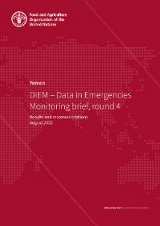
Yemen: DIEM – Data in Emergencies Monitoring brief, round 4
09/2022
This Data in Emergencies Monitoring (DIEM-Monitoring) brief shares the results of a fourth-round field assessment conducted between March and April 2022 in Yemen.
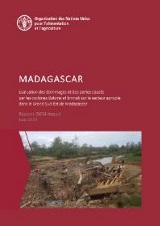
Madagascar: Évaluation des dommages et des pertes causés par les cyclones Batsirai et Emnati sur le secteur agricole dans le Grand Sud-Est de Madagascar
09/2022
En février 2022, la région du Grand Sud-Est de Madagascar a été touchée par deux violents cyclones tropicaux, Batsirai et Emnati , qui ont causé des dommages très importants aux moyens d’existence agricoles et contribué à la dégradation de la sécurité alimentaire d’une partie de la population.
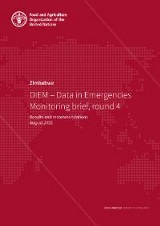
Zimbabwe: DIEM – Data in Emergencies Monitoring brief, round 4
08/2022
This Data in Emergencies Monitoring (DIEM-Monitoring) brief shares the results of a fourth-round field assessment conducted between March and May 2022 in Zimbabwe.
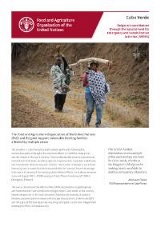
Cabo Verde: Belgium's contribution through the Special Fund for Emergency and Rehabilitation Activities (SFERA)
08/2022
The situation in Cabo Verde has deteriorated significantly following five consecutive years of drought, the economic effects of COVID-19, rising prices and the impact of the war in Ukraine.
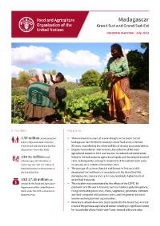
Madagascar Grand Sud and Grand Sud-Est: Response overview, July 2022
08/2022
In Madagascar, three consecutive years of severe drought in the Grand Sud have led to the country’s worst food crisis in the last 20 years, exacerbating the vulnerabilities of already poor populations.
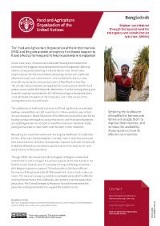
Bangladesh: Belgium contribution through the Special Fund for Emergency and Rehabilitation Activities (SFERA)
08/2022
Through the Special Fund for Emergency and Rehabilitation Activities (SFERA), the Government of the Kingdom of Belgium contributed USD 500 000 to FAO to mitigate the adverse impacts of two waves of devastating flash floods (May–June 2022) on the livelihoods and food security of vulnerable farming and fishing households.
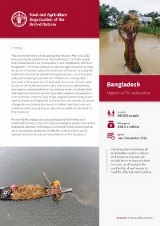
Bangladesh: Urgent call for assistance
08/2022
Two consecutive waves of devastating flash floods in May–June 2022 have severely disrupted the lives and livelihoods of 7.3 million people from predominantly rural communities in nine northeastern districts in Bangladesh.
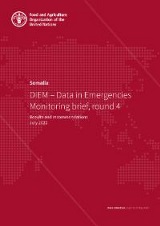
Somalia: DIEM – Data in Emergencies Monitoring brief, round 4
08/2022
This Data in Emergencies Monitoring (DIEM-Monitoring) brief shares the results of a fourth-round field assessment conducted between April and May 2022 in Somalia.
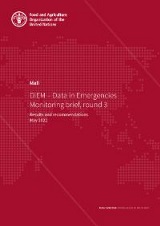
Mali: DIEM – Data in Emergencies Monitoring brief, round 3
08/2022
This Data in Emergencies Monitoring (DIEM-Monitoring) brief shares the results of a third-round field assessment conducted between February and March 2022 in Mali.
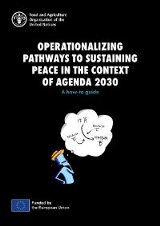
Operationalizing pathways to sustaining peace in the context of Agenda 2030
08/2022
The number of people worldwide who live in settings where conflict and violence are a daily occurrence is increasing.
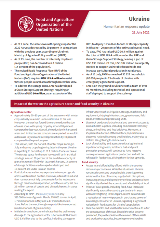
Ukraine: Humanitarian response update, 21 July 2022
07/2022
This document provides an up-to-date summary of the humanitarian situation in Ukraine and the response of the Food and Agriculture Organization of the United Nations (FAO) on the ground.
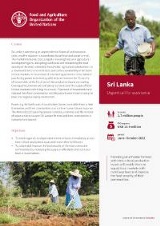
Sri Lanka: Urgent call for assistance
07/2022
Sri Lanka is witnessing an unprecedented financial and economic crisis, and the situation is exacerbated by political and social turmoil.
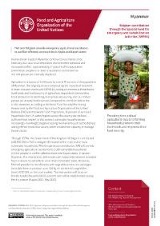
FAO and Belgium provide emergency agricultural assistance to conflict-affected communities in Kayin and Kayah states
07/2022
Through the Special Fund for Emergency and Rehabilitation Activities (SFERA), the Government of the Kingdom of Belgium contributed USD 500 000 to FAO to mitigate the impact of the ongoing crisis in Myanmar on the most vulnerable households.
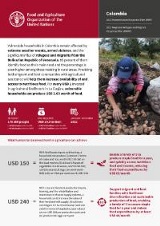
Colombia: 2022 Humanitarian Response Plan (HRP)
07/2022
Vulnerable households in Colombia remain affected by extreme weather events, armed violence, and the significant influx of refugees and migrants from the Bolivarian Republic of Venezuela.

Special Fund for Emergency and Rehabilitation Activities (SFERA): Annual Report 2021
07/2022
This annual report provides a brief description of the major operations initiated with the Special Fund for Emergency and Rehabilitation Activities (SFERA) for the 12-month period ending 31 December 2021. The report contains financial data for this period, as well as data since the Fund became operational.
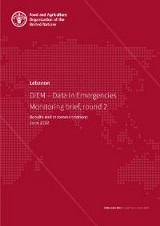
Lebanon: DIEM – Data in Emergencies Monitoring brief, round 2
07/2022
This Data in Emergencies Monitoring (DIEM-Monitoring) brief shares the results of a second-round field assessment conducted between March and April 2022 in Lebanon.
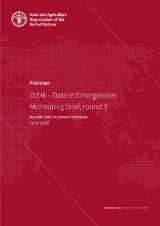
Pakistan: DIEM – Data in Emergencies Monitoring brief, round 3
07/2022
This Data in Emergencies Monitoring (DIEM-Monitoring) brief shares the results of a third-round field assessment conducted between March and April 2022 in Pakistan.
